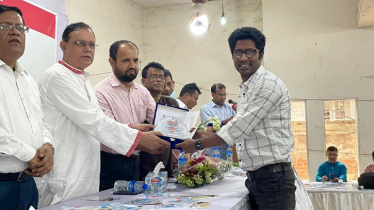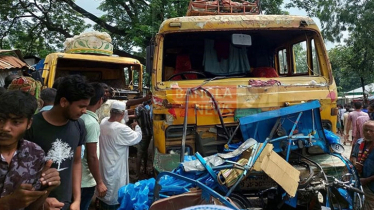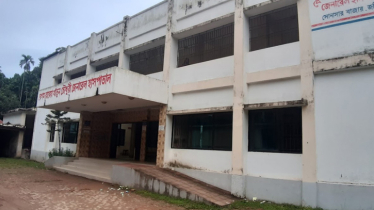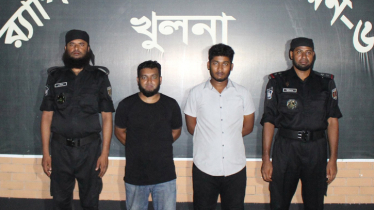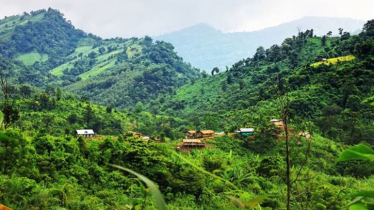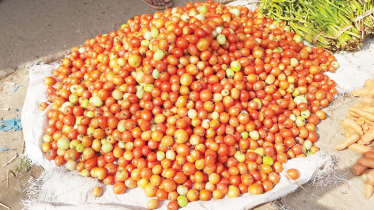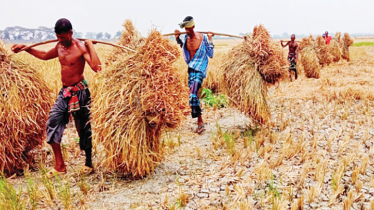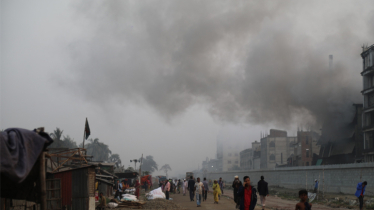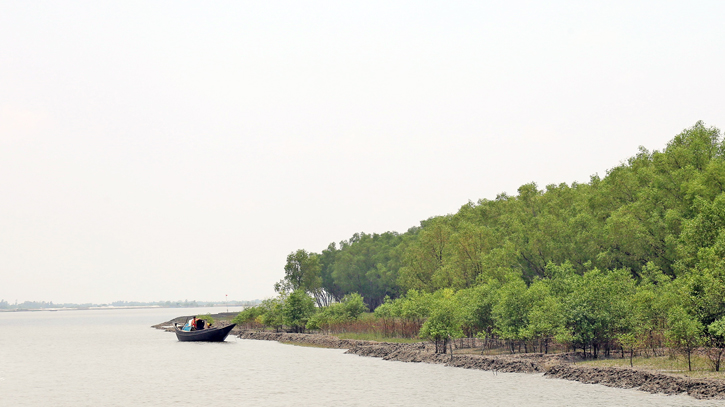
Photo : TDM
For several years, mangrove plantation along the banks of the Satkhira coast has been playing a pivotal role in safeguarding the local community from natural calamities while transforming their livelihoods.
The afforestation initiative has not only mitigated the impacts of river erosion, cyclones, storm surges, tidal surges, and salinity but has also made the community economically self-reliant by providing a multitude of benefits.
Chobilar Rahman, a 60-year-old resident of Ramzannagar Union in Satkhira Shyamnagar Upazila, described the remarkable changes since the FRIENDSHIP project’s inception in 2019. "A few years ago, this place resembled a barren desert, with no vegetation to feed cattle.”
“Now, thanks to the flourishing mangrove forest, we have ample grass and leaves, providing valuable fodder for our cattle," he stated joyfully.
Fatima, another resident of Ramzannagar, also lauded the project's impact. "Before the FRIENDSHIP project initiated the mangrove afforestation, our region suffered from riverbank erosion and uncontrolled water crossings.”
“Now, the WAPDA embankment stands strong, preventing erosion and safeguarding our lands. The trees and forests have been a boon to us," Fatima remarked gratefully.
Social activist Masud Rana highlighted the coordinated efforts involving UNO, AC Land, and Union Parishad in executing the afforestation project. He emphasized that the lack of awareness among locals about mangrove afforestation was initially a challenge. However, the positive outcomes have become evident, with the presence of forests leading to an increased habitat for fish and crabs, resulting in improved fishing opportunities and enhanced economic self-reliance for the community.
The regional manager of social organization FRIENDSHIP, Mizanur Rahman, provided insight into the reasons behind choosing the Madar River bank in Ramzannagar for mangrove plantation. "Four years ago, this area was desolate. In 2019, we planted saplings, assigning four local residents as caretakers.
“The plantation included six species of mangrove trees, serving various purposes such as fruit production, honey collection, supporting community livelihoods, and protecting coastal embankments,” Mizanur Rahman explained.
According to Mizanur Rahman, the afforestation covered 4 hectares of land with 3,000 saplings planted per hectare, totaling 12,000 saplings along the riverbank in Ramzannagar. The presence of the mangrove forest has effectively minimized the impact of high tides and waves during storms, providing added protection to the region. Additionally, the once dilapidated road has been rejuvenated and strengthened by the afforestation project.
Runa Khan, the founder and executive director of FRIENDSHIP, spoke about the organization's dedication to disaster management since Cyclone Sidr struck in 2008. "As the world's first to face the harsh realities of climate change in densely populated areas, it is crucial to fortify our frontline defenses against natural disasters such as rising sea levels, floods, and cyclones.
“Mangrove afforestation serves as a preparatory measure to tackle potential hazards, safeguarding embankments and preserving settlements and native forests," Runa Khan further said.
West Sundarban Range Officer, KM Iqbal Hossain, stressed the multifaceted benefits of this type of forestry. The social mangrove afforestation initiative not only prevents river erosion but also shields the community from high tides, storm surges, and cyclones. Furthermore, the thriving vegetation provides valuable cattle fodder, revitalizing the saline barren lands and playing an instrumental role in boosting the local economy.
TDM/SD


